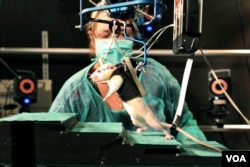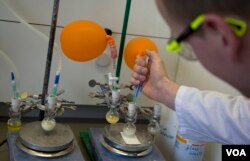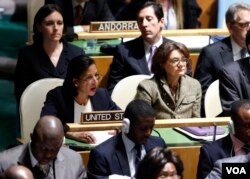Last year, as a freshmen, I read novels, performed acid base titrations and memorized obscure formulas. I grappled with Hobbes and Locke, solved integrals and balanced equations. I crisscrossed from Chemistry to Calculus to Anthropology to Economics to African-American Studies to Politics, all in the hopes of winnowing down the chaff of possible majors to a fine grain from which I would then select just one to weave the tapestry of the rest of my life.
That was a bizarre analogy, but you get the point. I've been trying to figure out what to major in. Now that I am in my sophomore year, I am going to have to get around to it very soon. At Oberlin College every student has to declare their major during the second semester of their sophomore year. For me this will occur even sooner because of the number of credits I transferred from high school.
One of the reasons why I did not choose to study in own country was because I wanted to postpone choosing a major as long as possible. In Zimbabwe you must know your major before you apply to college—in fact, you apply to a specific department within the university and not to the university in general.
In Zimbabwe, students are often encouraged, or rather strongly compelled, to study subjects that will lead them to careers in something "practical" (and lucrative) like law or medicine. Because I had specialized in the sciences in high school, had I remained in Zimbabwe chances are I would be well on my way to monitoring mice in a lab.
But I wanted the opportunity to explore the options before committing to something for the rest of my life, and I have certainly done that – in the past year and a bit I have tried out pretty much all the things I theoretically thought I might like to choose.
At one point I thought I wanted to major in chemistry. I was obviously not thinking straight. The minute I completed my first course in chemistry was the minute I buried any and all such illusions.
In high school, chemistry was without a doubt my favorite subject. Yet as I performed more and more titrations and sat through what seemed an eternal continuum of chatter about s-shaped orbitals, I decided my patience had reached an end. I needed stimulation beyond atomic bonds and methyl orange indicator.
I then tried my hand at cultural anthropology, intrigued by a course description that talked of exploring race, culture and ethnocentrism in “third world” contexts. But instead of trying to genuinely learn from other cultures, it appeared the agenda of the class was to take the cultures that were thought to be most different from Western cultures (i.e. “native” and mostly African tribal societies) and then scratch our heads trying to figure out how in the world they ended up that way (instead of just being “normal” like Westerners.) That marked the end of my journey into anthropology.
Once my infatuations with chemistry and anthropology had quite emphatically run their course, I went out in search of new ideas and concepts to grapple with. I eventually found what I was looking for in two classes: “Politics and Society in Africa” and “Introduction to American Politics.” These classes exposed me to the study of politics in two very different contexts – one which I knew intimately and another which was entirely alien. I loved my readings and enjoyed my work. I was feeling stimulated in ways that had been lacking in my science-filled high school years.
In the humanities and social sciences, there is never really a definite, “final” answer. Every author has an argument and an agenda, and, as I quickly learned, you cannot simply accept everything you read without inviting your critical thinking skills to the table. For example, in one class, my professor gave us a short passage to read that gave a rather negative perspective on the state of affairs in Sierra Leone, and after reading it I blindly bought into the author’s arguments. The following day, the professor handed us a counterargument to the article we had just read. I found it more convincing and reasonable than the first, and I felt embarrassed to have so thoughtlessly agreed with the first author’s view.
This experience, and others like it, opened up my mind to new avenues of thought and new methods of dealing with ideas and information that I had never been exposed to before. Since then, I haven’t really felt even the slightest urge to return to the number-crunching world of math and science, which, despite having its own its own merits and attractive aspects, is just not for me.
Yet there remained a nagging problem: What would my parents and family think of my newfound passion? Hopes were high back home that after graduating from college I would move on to becoming a medical doctor. Stethoscopes were thought to be in in my future from virtually the end of primary school.
When I went home this summer and broke the news of my defection from science, alarm was immediately raised. Why did I all of a sudden want to become a politician? Like Mugabe? And what does one do with a degree in politics?
It seemed unlike me, a family member cautioned when I responded that I could work in economic development or human rights. Make sure you are not making a mistake, he warned, with a sunken expression of disappointment on his face.
Despite the barrage of warnings, I continue to press on with my newly found love for the humanities, taking mostly politics courses with some economics and history. When I declare my major in the spring, it will probably be something in the social sciences/humanities.
Of course, I continually question the quality of my decisions, and am often doubtful of the strength of my own wisdom to make discerning choices. And this is not just any choice; this one feels fundamental, defining, and irreversible (at least, if I ever want to graduate on time).
I understand my family’s nervousness--the job market is bleak, so it makes sense to be equipped with skills that lead seamlessly into a career, and particularly a career that pays well. Because money, especially lots of it, is great for buying things that, hypothetically, are supposed to increase your chances of future happiness.
But I don’t think that material comfort overrides the fundamental peace of mind that comes with doing what you enjoy rather than what multiplies your bank balance. And because of that, I probably will stick to my decision. At least for now.
That was a bizarre analogy, but you get the point. I've been trying to figure out what to major in. Now that I am in my sophomore year, I am going to have to get around to it very soon. At Oberlin College every student has to declare their major during the second semester of their sophomore year. For me this will occur even sooner because of the number of credits I transferred from high school.
One of the reasons why I did not choose to study in own country was because I wanted to postpone choosing a major as long as possible. In Zimbabwe you must know your major before you apply to college—in fact, you apply to a specific department within the university and not to the university in general.
In Zimbabwe, students are often encouraged, or rather strongly compelled, to study subjects that will lead them to careers in something "practical" (and lucrative) like law or medicine. Because I had specialized in the sciences in high school, had I remained in Zimbabwe chances are I would be well on my way to monitoring mice in a lab.
But I wanted the opportunity to explore the options before committing to something for the rest of my life, and I have certainly done that – in the past year and a bit I have tried out pretty much all the things I theoretically thought I might like to choose.
At one point I thought I wanted to major in chemistry. I was obviously not thinking straight. The minute I completed my first course in chemistry was the minute I buried any and all such illusions.
In high school, chemistry was without a doubt my favorite subject. Yet as I performed more and more titrations and sat through what seemed an eternal continuum of chatter about s-shaped orbitals, I decided my patience had reached an end. I needed stimulation beyond atomic bonds and methyl orange indicator.
I then tried my hand at cultural anthropology, intrigued by a course description that talked of exploring race, culture and ethnocentrism in “third world” contexts. But instead of trying to genuinely learn from other cultures, it appeared the agenda of the class was to take the cultures that were thought to be most different from Western cultures (i.e. “native” and mostly African tribal societies) and then scratch our heads trying to figure out how in the world they ended up that way (instead of just being “normal” like Westerners.) That marked the end of my journey into anthropology.
Once my infatuations with chemistry and anthropology had quite emphatically run their course, I went out in search of new ideas and concepts to grapple with. I eventually found what I was looking for in two classes: “Politics and Society in Africa” and “Introduction to American Politics.” These classes exposed me to the study of politics in two very different contexts – one which I knew intimately and another which was entirely alien. I loved my readings and enjoyed my work. I was feeling stimulated in ways that had been lacking in my science-filled high school years.
In the humanities and social sciences, there is never really a definite, “final” answer. Every author has an argument and an agenda, and, as I quickly learned, you cannot simply accept everything you read without inviting your critical thinking skills to the table. For example, in one class, my professor gave us a short passage to read that gave a rather negative perspective on the state of affairs in Sierra Leone, and after reading it I blindly bought into the author’s arguments. The following day, the professor handed us a counterargument to the article we had just read. I found it more convincing and reasonable than the first, and I felt embarrassed to have so thoughtlessly agreed with the first author’s view.
This experience, and others like it, opened up my mind to new avenues of thought and new methods of dealing with ideas and information that I had never been exposed to before. Since then, I haven’t really felt even the slightest urge to return to the number-crunching world of math and science, which, despite having its own its own merits and attractive aspects, is just not for me.
Yet there remained a nagging problem: What would my parents and family think of my newfound passion? Hopes were high back home that after graduating from college I would move on to becoming a medical doctor. Stethoscopes were thought to be in in my future from virtually the end of primary school.
When I went home this summer and broke the news of my defection from science, alarm was immediately raised. Why did I all of a sudden want to become a politician? Like Mugabe? And what does one do with a degree in politics?
It seemed unlike me, a family member cautioned when I responded that I could work in economic development or human rights. Make sure you are not making a mistake, he warned, with a sunken expression of disappointment on his face.
Despite the barrage of warnings, I continue to press on with my newly found love for the humanities, taking mostly politics courses with some economics and history. When I declare my major in the spring, it will probably be something in the social sciences/humanities.
Of course, I continually question the quality of my decisions, and am often doubtful of the strength of my own wisdom to make discerning choices. And this is not just any choice; this one feels fundamental, defining, and irreversible (at least, if I ever want to graduate on time).
I understand my family’s nervousness--the job market is bleak, so it makes sense to be equipped with skills that lead seamlessly into a career, and particularly a career that pays well. Because money, especially lots of it, is great for buying things that, hypothetically, are supposed to increase your chances of future happiness.
But I don’t think that material comfort overrides the fundamental peace of mind that comes with doing what you enjoy rather than what multiplies your bank balance. And because of that, I probably will stick to my decision. At least for now.







